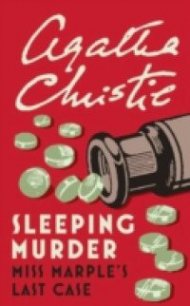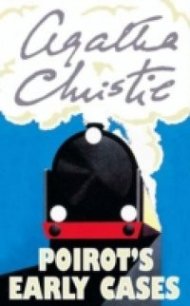Murder on the Orient Express - Christie Agatha (читать книги полные .TXT) 📗
Poirot murmured: “It is not quite so simple as that, my friend. Our friend the doctor here will tell you so.”
With a gesture M. Bouc signified that the three conductors might depart.
“We have still to see eight passengers,” said Poirot. “Five first-class passengers – Princess Dragomiroff, Count and Countess Andrenyi, Colonel Arbuthnot, and Mr. Hardman. Three second-class passengers – Miss Debenham, Antonio Foscarelli, and the lady’s-maid, Fraulein Schmidt.”
“Whom will you see first – the Italian?”
“How you harp on your Italian! No, we will start at the top of the tree. Perhaps Madame la Princesse will be so good as to spare us a few moments of her time. Convey that message to her, Michel.”
“Oui, Monsieur,” said the conductor, who was just leaving the car.
“Tell her we can wait on her in her compartment if she does not wish to put herself to the trouble of coming here,” called M. Bouc.
But Princess Dragomiroff declined to take this course. She appeared in the dining-car, inclined her head slightly and sat down opposite Poirot.
Her small toad-like face looked even yellower than the day before. She was certainly ugly, and yet, like the toad, she had eyes like jewels, dark and imperious, revealing latent energy and an intellectual force that could be felt at once.
Her voice was deep, very distinct, with a slight grating quality in it.
She cut short a flowery phrase of apology from M. Bouc.
“You need not offer apologies, Messieurs. I understand a murder has taken place. Naturally you must interview all the passengers. I shall be glad to give you all the assistance in my power.”
“You are most amiable, Madame,” said Poirot.
“Not at all. It is a duty. What do you wish to know?”
“Your full Christian names and address, Madame. Perhaps you would prefer to write them yourself?”
Poirot proffered a sheet of paper and pencil, but the Princess waved them aside.
“You can write it,” she said. “There is nothing difficult. Natalia Dragomiroff, 17 Avenue Kleber, Paris.”
“You are travelling home from Constantinople, Madame?”
“Yes. I have been staying at the Austrian Embassy. My maid is with me.”
“Would you be so good as to give me a brief account of your movements last night from dinner onwards?”
“Willingly. I directed the conductor to make up my bed whilst I was in the dining-car. I retired to bed immediately after dinner. I read until the hour of eleven, when I turned out my light. I was unable to sleep owing to certain rheumatic pains from which I suffer. At about a quarter to one I rang for my maid. She massaged me and then read aloud till I felt sleepy. I cannot say exactly, when she left me. It may have been half an hour afterward, it may have been later.”
“The train had stopped then?”
“The train had stopped.”
“You heard nothing – nothing unusual during the time, Madame?”
“I heard nothing unusual.”
“What is your maids name?”
“Hildegarde Schmidt.”
“She has been with you long?”
“Fifteen years.”
“You consider her trustworthy?”
“Absolutely. Her people come from an estate of my late husband’s in Germany.”
“You have been in America, I presume, Madame?”
The abrupt change of subject made the old lady raise her eyebrows. “Many times.”
“Were you at any time acquainted with a family of the name of Armstrong – a family in which a tragedy occurred?”
With some emotion in her voice the old lady said: “You speak of friends of mine, Monsieur.”
“You knew Colonel Armstrong well, then?”
“I knew him slightly, but his wife, Sonia Armstrong, was my god-daughter. I was on terms of friendship with her mother, the actress, Linda Arden. Linda Arden was a great genius, one of the greatest tragic actresses in the world. As Lady Macbeth, as Magda, there was no one to touch her. I was not only an admirer of her art, I was a personal friend.”
“She is dead?”
“No, no, she is alive, but she lives in complete retirement. Her health is very delicate, and she has to lie on a sofa most of the time.”
“There was, I think, a second daughter?”
“Yes, much younger than Mrs. Armstrong.”
“And she is alive?”
“Certainly.”
“Where is she?”
The old woman bent an acute glance at him.
“I must ask you the reason for these questions. What have they to do with the matter in hand – the murder on this train?”
“They are connected in this way, Madame: the man who was murdered was the man responsible for the kidnapping and murder of Mrs. Armstrong’s child.”
“Ah!”
The straight brows came together. Princess Dragomiroff drew herself a little more erect.
“In my view, then, this murder is an entirely admirable happening! You will pardon my slightly biased point of view.”
“It is most natural, Madame. And now to return to the question you did not answer. Where is the younger daughter of Linda Arden, the sister of Mrs. Armstrong?”
“I honestly cannot tell you, Monsieur. I have lost touch with the younger generation. I believe she married an Englishman some years ago and went to England, but at the moment I cannot recollect the name.”
She paused a minute and then said:
“Is there anything further you want to ask me, gentlemen?”
“Only one thing, Madame, a somewhat personal question. The colour of your dressing-gown.”
She raised her eyebrows slightly. “I must suppose you have a reason for such a question. My dressing-gown is of black satin.”
“There is nothing more, Madame. I am much obliged to you for answering my questions so promptly.”
She made a slight gesture with her heavily beringed hand. Then as she rose, and the others rose with her, she stopped.
“You will excuse me, Monsieur,” she said, “but may I ask your name? Your face is somehow familiar to me.”
“My name, Madame, is Hercule Poirot – at your service.”
She was silent a minute, then: “Hercule Poirot,” she said. “Yes. I remember now. This is Destiny.”
She walked away, very erect, a little stiff in her movements.
“Voila une grande dame,” said M. Bouc. “What do you think of her, my friend?”
But Hercule Poirot merely shook his head.
“I am wondering,” he said, “what she meant by Destiny.”
7. The Evidence of Count and Countess Andrenyi
Count and Countess Andrenyi were next summoned. The Count, however, entered the dining-car alone.
There was no doubt that he was a fine-looking man seen face to face. He was at least six feet in height, with broad shoulders and slender hips. He was dressed in very well-cut English tweeds and might have been taken for an Englishman had it not been for the length of his moustache and something in the line of the cheekbone.
“Well, Messieurs,” he said, “what can I do for you?”
“You understand, Monsieur,” said Poirot, “that in view of what has occurred I am obliged to put certain questions to all the passengers.”
“Perfectly, perfectly,” said the Count easily. “I quite understand your position. Not, I fear, that my wife and I can do much to assist you. We were asleep and heard nothing at all.”
“Are you aware of the identity of the deceased, Monsieur?”
“I understood it was the big American – a man with a decidedly unpleasant face. He sat at that table at meal times.” He indicated with a nod of his head the table at which Ratchett and MacQueen had sat.
“Yes, yes, Monsieur, you are perfectly correct. I meant – did you know the name of the man?”
“No.” The Count looked thoroughly puzzled by Poirot’s queries.
“If you want to know his name,” he said, “surely it is on his passport?”
“The name on his passport is Ratchett,” said Poirot. “But that, Monsieur, is not his real name. He is the man Cassetti, who was responsible for a celebrated kidnapping outrage in America.”



